Illustration of Larry Rosen, chief executive officer of retailer Harry Rosen.
(ANTHONY JENKINS FOR THE GLOBE AND MAIL)
Scanning the menu at his go-to restaurant, just around the corner from his flagship store on Toronto’s Mink Mile, Larry Rosen looks disappointed.
He’s searching for the one item he always orders: a diet-friendly roasted chicken breast – hold the whipped potatoes – Mr. Rosen’s secret weapon in the battle of the bulge. But upscale Pangaea Restaurant is, on this day, touting unfamiliar Winterlicious deals.
It turns out the eatery still offers the dish, and we both order it. He declines taking bread (“I try to avoid bread”) and wine (only on weekends.) “I’m very disciplined,” he says. “I’m down about 10 pounds from my peak. But I’ve got another 10 pounds to go. Is it working? It’s a lifelong battle.”
The boss of Canada’s top luxury men’s fashion purveyor will need more of that steely discipline as he gears up for an even bigger battle in the escalating retail wars. High-end U.S. department-store retailers Nordstrom Inc. and Saks Inc. are invading this country, starting this year, aiming to steal away Mr. Rosen’s well-heeled customers. Holt Renfrew & Co. Ltd., the reigning premium fashion player here, is expanding and upgrading its stores while putting a bigger emphasis on men’s wear, whose sales generally are growing faster than those of women’s clothing.
Holts is even launching its first standalone men’s-only shop on Tony Bloor Street West, just across from Mr. Rosen’s flagship store.
Today at lunch, Mr. Rosen shows his pragmatic nature in his food choices but also a more aggressive side as he sums up his latest business strategy in two words: “cocky and Canadian.” Changing times call for a change in mindset and he feels the urgency to raise his game.
He has budgeted an unprecedented $80-million in spending over five years to bolster Harry Rosen Inc.'s space by 40 per cent at many of its 16 stores and beef up e-commerce and customer service to keep shoppers away from Holts, Nordstrom and Saks.
He’s betting Harry Rosen can eventually become a $1-billion-a-year international powerhouse, from less than $300-million in annual sales today. But he likely will have to wait for the next generation of the chain’s leaders – perhaps his own sons – to fulfill his long-term ambition.
“This may sound a little cocky and Canadian, but we’ve been serving the leaders of this country – the up and comers, the managers, the owners, the professionals, the entrepreneurs – for 60 years,” he says. “I don’t imagine that one day they’re going to wake up and say, ‘My goodness, what’s missing from my life is an American department store experience.’ … We love competition. Bring it on, because we shine in that environment. Now that is definitely cocky and Canadian.”
Clad in a $6,000 Brioni charcoal microcheck suit, a $200 purple Tom Ford tie, and white boutonniere in his lapel, the 57-year-old looks the part of fashion executive on the offensive. He’s not shy about asserting himself if need be. He recently persuaded Pangaea to restore the roasted-chicken dish to its regular menu after it had dropped it.
Pangaea owner and chef Martin Kouprie recalls with a twinkle in his eye Mr. Rosen’s insistence on the eatery bringing back the chicken by holding “a gun to my head,” the chef says with a laugh. “He’s a visionary. You don’t want to screw with his vision.”
Marty Grundy, managing director of key supplier Ermenegildo Zegna Canada, said Mr. Rosen can be tough in his business dealings, but has a “wicked” sense of humour. “Larry would like it to be a Harry Rosen-centric country. He understands it won’t be.” Yet he is also conciliatory if given a logical explanation in a disagreement.
Still, pushiness doesn’t always come naturally for Mr. Rosen. He left the showmanship to his father, Harry, 82, founder of the chain and a charismatic figure who is now retired. The chain still runs its iconic “Ask Harry” column, advising men, for instance, on whether their socks should match their shoes or pants. Larry personally replies to online questions. (“Generally the colour of the sock should complement the trouser.”)
“I live and breathe men’s wear,” he says. “If people ask me which way does a cummerbund fold, up or down, I can tell them up and I can even tell them why. This is what I do. You’re not going to find a question on men’s wear that you can stump me on.”
His father became something of a retail legend in 1987 when he posed for the cover of the Report on Business Magazine wearing nothing but a tie. Would the son ever do something like that? “Never,” Larry says.
“My father has always been an enormous risk taker … I’m probably more comfortable not being as much in the limelight as my father. I always joke: My father’s job was to build the business. My job is really not to screw it up.”
He had big shoes to fill. With a $500 down payment, Harry founded the business with his brother Lou in a Cabbagetown made-to-measure shop in 1954. As a boy, Larry hung out at the store, later working summers at the chain. But he never intended to go into the family business full-time. The oldest of four children – only one other worked at the company until she had a family – Larry took a year off after high school to backpack around Europe before getting an undergraduate degree in economics at the University of Toronto and then a joint law and MBA degree at University of Western Ontario in London, Ont.
He practised corporate law at a small firm but by the early eighties his father was rapidly expanding Harry Rosen across the country and suddenly gaining a higher profile. “I just felt this tremendous sense of pride and a feeling that I had to be part of it,” Larry says.
He worked in various management positions at the retailer for 15 years before becoming CEO. But he thinks his early years on the sales floor gave him important life skills. His father was a more natural salesman than he was, but he learned. “I’d advise every young person to learn how to sell,” he says. “It helps you in everything – putting forward your point of view. It teaches you how to convince people that they should appreciate something. Even as a parent, you’re constantly selling. Isn’t life about selling?”
For all his pragmatism, Mr. Rosen can still let it go. He’s a guitarist in a band along with his head of store design and manager of the Bloor Street location, jamming hard rock and blues tunes in a downtown studio. (“I wouldn’t play in public.”) Sometimes his 24-year-old middle son, Ian, joins them on drums. The band is called JP & the Tilfords, after Harry Rosen‘s private label JP Tilford line. And true to his methodical ways, Mr. Rosen takes guitar lessons every Sunday.(Interestingly, Mr. Rosen gave the go-ahead for Nordstrom to carry the Tilford line a few years ago; but when he realized the U.S. chain was coming to Canada, he asked it to drop the label, which it did.)
He keeps in shape by going to a trainer three times a week, usually by 7 a.m., and takes a spin class at a fitness club on Sundays. And while he packs his gym clothes for business trips – he travels as many as 100 days of the year – the scheduling and eating out can play havoc with his “perpetual” diet. “I’d be a pretty heavy guy if I wasn’t this disciplined.”
When it comes to his private time, he prefers to travel to more exotic destinations. Last year he went with his wife – a real estate lawyer whom he met at law school – to Peru, where they climbed to the top of Machu Picchu. He will soon take his wife with him to Turkey, where he has an industry conference, after which they’ll take time off to see the sights. Already, he is reading up on the history of the Ottoman Empire.
But it’s the looming retail battle ahead that occupies much of Mr. Rosen’s time. As he strategizes, old disagreements with his father take on renewed significance. Specifically, over Harry Rosen’s expansion in the 1980s and 1990s into women’s wear and the United States – both strategies that the retailer eventually abandoned. “He wanted to keep it going,” Mr. Rosen says. “I was a big proponent of getting rid of it.” He felt the U.S. operation distracted his top executives’ attention from the core Canadian business, and Harry Rosen was too masculine a brand to stock women’s fashion. Still, two years ago, in anticipation of increased competition, Mr. Rosen again considered branching out into women’s clothing through an acquisition. For now, he’s rejected the idea. He figures Harry Rosen has an edge in specializing in men while its key competitors focus more on women.
“I think there is a war – clouds of war are on the horizon,” he says. “And trust me, none of these competitors are going to be just throwing in the towel. They’re all going to fight for every dollar, and we have to make sure that we execute.”
CURRICULUM VITAE
Beginnings
Born in Toronto, 1956
Family
Married to Susan Jackson, who practised real estate law on Bay Street for 20 years and now focuses on charity work.
Has three sons: Daniel, 26; Ian, 24; and Graham, 22.
None of his three sons work in the business but “I’m hopeful that one day it may come to pass,” Mr. Rosen says. His two youngest work in large management consulting firms; Ian will be heading to one of the prestigious American universities this fall to do an MBA, he’s already been accepted at two. Daniel, the oldest, is doing a PhD in music at Western where he will start law school later this year.
Education
Bachelor of Arts degree from the University of Toronto.
Master of Business Administration and Bachelor of Laws degree from the University of Western Ontario.
Career
As a teenager, worked summers as a salesman at Harry Rosen stores.
Articled at McCarthys and then practised corporate law at small law firm in Toronto.
Joined Harry Rosen as a buyer in 1986, then worked in store operations at senior management level and became buying director.
In 1997, he was named president and chief operating officer and, in 2000, chairman and chief executive officer.
Other activities
Member of the Ivey Advisory Board, the Ivey Entrepreneurship Advisory Council and the Princess Margaret Cancer Foundation Board.
Spearheads Harry’s Spring Run-Off, which has raised more than $3-million.
IN HIS OWN WORDS
On sponsoring a kids’ Harry Rosen hockey team, even though his three sons no longer play in the league: “I think it’s great when the grandparents and the parents all come out and see their little kids dressed in the splendour of Harry Rosen.”
On why he always orders the same chicken dish at upscale Pangaea Restaurant: “I know the calorie count, I know what we’re getting and I know that I’m full after.”
On fashion: “The fashion business is a wonderful business because it’s eternally young. It’s an industry that is dominated by younger people. It’s always reinventing. And I find it keeps me young.”
On joining the family business: “My father had two concerns: One is, I don’t think he wanted the appearance of nepotism. And he made it clear to me when I joined that I would have to prove myself. And the other thing is, I think he wanted us to not feel pressure to join a family business.”
On long-term future: “I’m a big believer that businesses have to grow if they want to engage their people … I confess that in three to five years we’re going to have to find something new. Whether that will be an international expansion or an expansion of our brand into new markets, such as women – I’m not going to speculate right now until we formalize it in our minds.”
On the retail war: “It’s great for me to say we can win this war. But it requires us going out and proving it 365 days a year. You just have to mess up once with a client and you can lose their loyalty.”

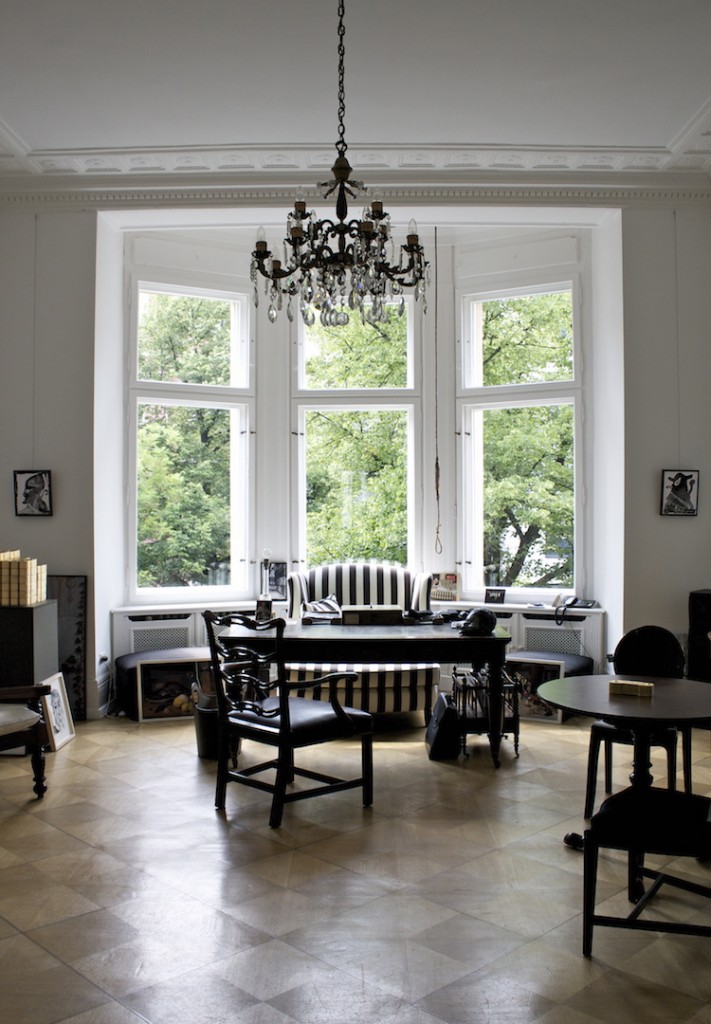
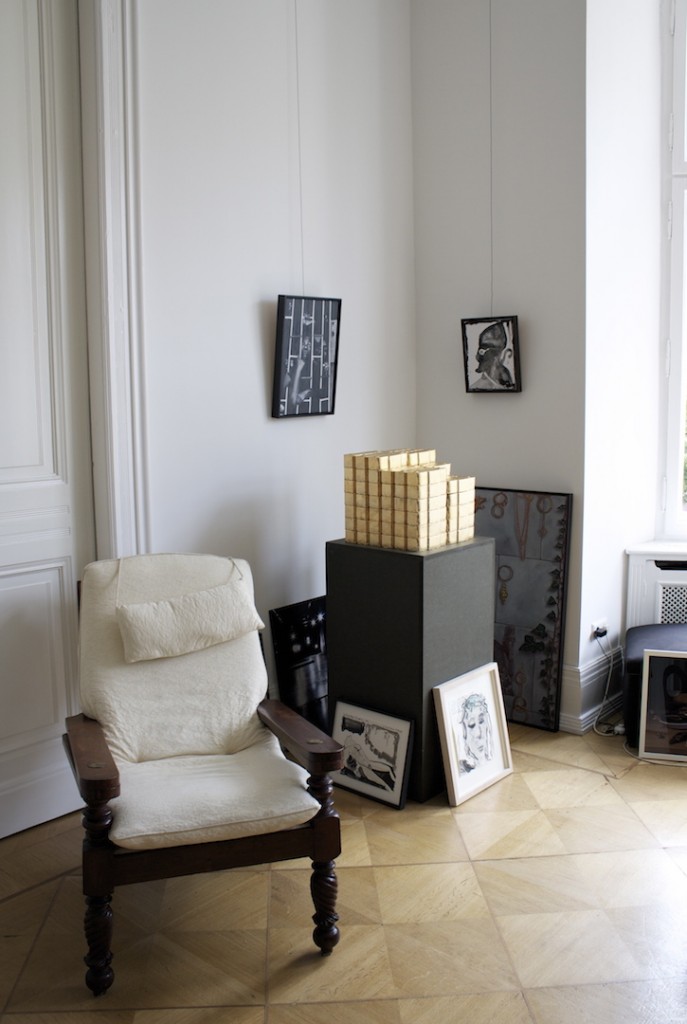

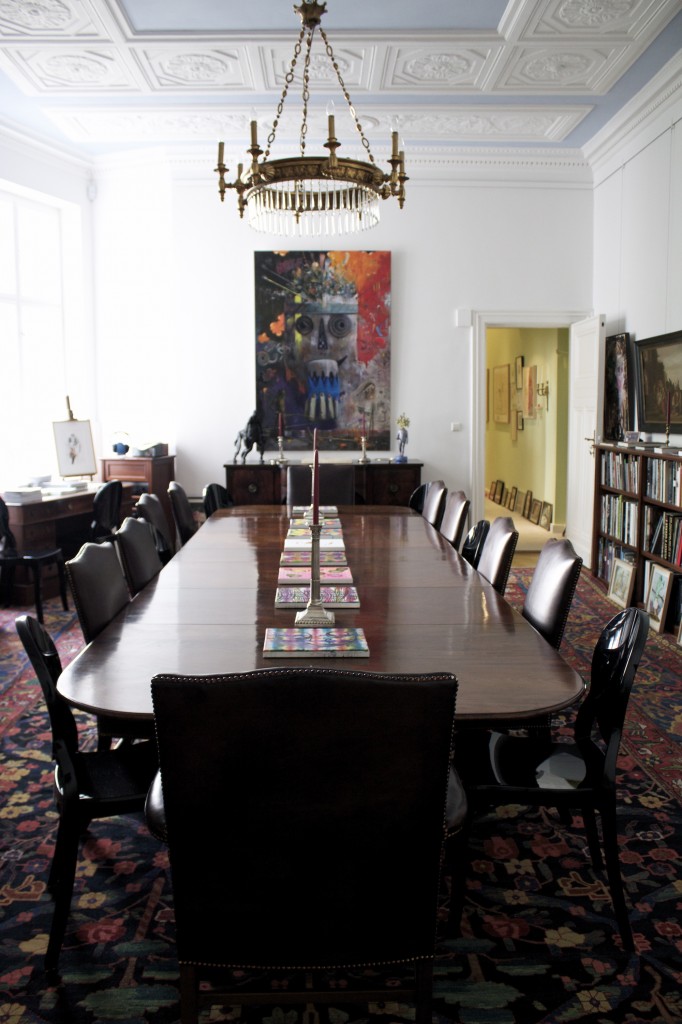



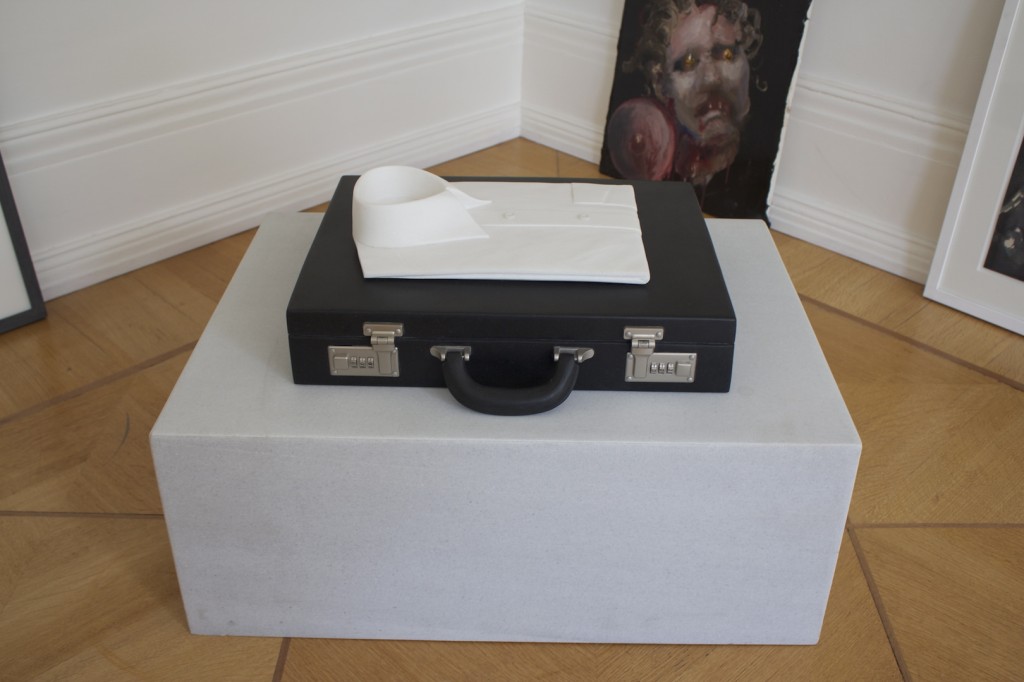

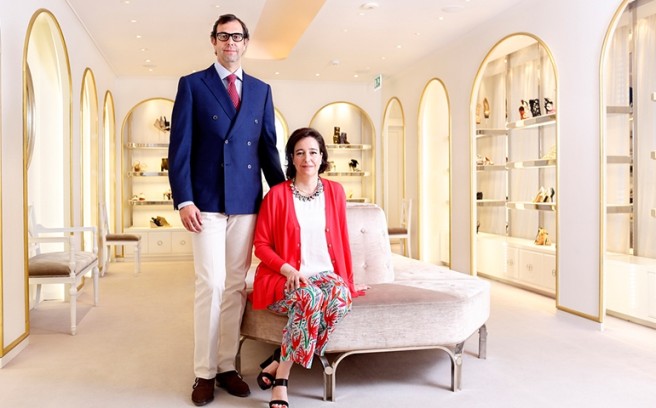



 Antonis Carouzos the patriarch and founder of our Greek member Carouzos has died at the age of 63. Antonis will be greatly missed by all IMG members and is survived by his wife Sofia, his sons Manolis and Vassilis and the entire Carouzos family. Their friends in the IMG send the family their condolences, love and support
The funeral service and burial will take place in Athens, on Monday August 1st at 5 pm, in the Vouliagmeni City Cemetery and all Carouzos stores all over Greece will be closed for that day in respect and memory of Antonis
Antonis Carouzos the patriarch and founder of our Greek member Carouzos has died at the age of 63. Antonis will be greatly missed by all IMG members and is survived by his wife Sofia, his sons Manolis and Vassilis and the entire Carouzos family. Their friends in the IMG send the family their condolences, love and support
The funeral service and burial will take place in Athens, on Monday August 1st at 5 pm, in the Vouliagmeni City Cemetery and all Carouzos stores all over Greece will be closed for that day in respect and memory of Antonis An Interview with Jack Mitchell, CEO, The Mitchell Family of Stores
Jan. 3 2011 - 4:01 pm
By ROBERT REISS
An Interview with Jack Mitchell, CEO, The Mitchell Family of Stores
Jan. 3 2011 - 4:01 pm
By ROBERT REISS Wilkes Bashford is an iconic family business off Union Square in San Francisco long owned and managed by Wilkes Bashford himself, a dapper, flamboyant personality well known in the Bay area for buying and selling the world’s most luxurious menswear.
Wilkes Bashford is an iconic family business off Union Square in San Francisco long owned and managed by Wilkes Bashford himself, a dapper, flamboyant personality well known in the Bay area for buying and selling the world’s most luxurious menswear.
 The new store is under construction and will open its doors in March 2011. The architect in charge of the project is Studio Sofield from New York City. The premises will have 2.000 sq meters and the selling surface will be around 1.500, divided in three floors.
The new store is under construction and will open its doors in March 2011. The architect in charge of the project is Studio Sofield from New York City. The premises will have 2.000 sq meters and the selling surface will be around 1.500, divided in three floors. HATS OFF TO HARRY was an intimate occasion celebrating Canadian icon, Mr Harry Rosen. The Tribute Dinner was hugely successful and raised $1.8million Canadian to support The Harry Rosen Diabetes Chair in Stem Cell Research in the McEwen Centre, University Health Network. The Chair supports an outstanding investigator focused on applying state-of-the-art stem cell biology and regenerative medicine approaches to further the understanding of the causes of diabetes, andhelp develop treatments for this devastating disease.
HATS OFF TO HARRY was an intimate occasion celebrating Canadian icon, Mr Harry Rosen. The Tribute Dinner was hugely successful and raised $1.8million Canadian to support The Harry Rosen Diabetes Chair in Stem Cell Research in the McEwen Centre, University Health Network. The Chair supports an outstanding investigator focused on applying state-of-the-art stem cell biology and regenerative medicine approaches to further the understanding of the causes of diabetes, andhelp develop treatments for this devastating disease.


